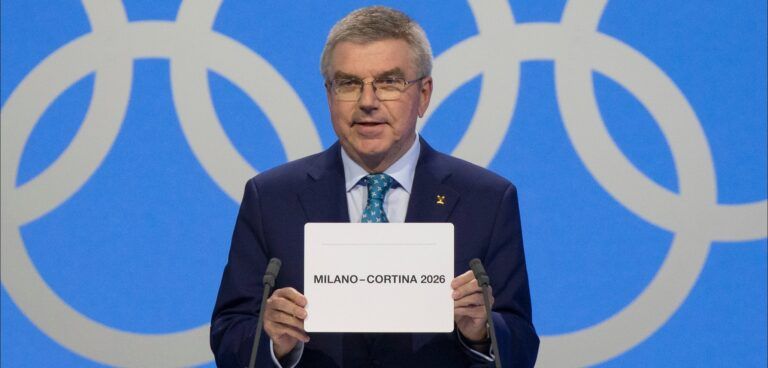The International Olympic Committee has announced that the host city of the 2026 Winter Olympic Games will be Milan-Cortina in Italy.
The joint bid from Milans and Cortina d’Ampezzo won the vote 47-34 as it faced competition over only one other bid in the ballot from Stockholm-Are from Sweden.
IOC president Thomas Bach said: “Congratulations to Milan-Cortina. We can look forward to outstanding and sustainable Olympic Winter Games in a traditional winter sports country. The passion and knowledge of Italian fans, together with experienced venue operators, will create the perfect atmosphere for the best athletes in the world. The Olympic Winter Games Milan-Cortina 2026 will feature iconic venues and beautiful settings, combining the attractions of a modern European metropolis with a classic Alpine environment.”
This will be the third Winter Games Italy has hosted with Cortina staging the event in 1956 and Turin in 2006, while Sweden has never hosted the Games despite bidding for it eight times.
Milan-Cortina’s successful bid owe a large part to its efforts to appeal to the IOC’s focus on delivering sustainable Games and avoid overspending on costly venues and potential white elephants.
For the 2026 Winter Games 13 out of 14 competition venues will be existing or temporary. The plan is fully in line with the Olympic Agenda 2020 reforms, which call for making maximum use of existing and temporary venues if there is no post-Games demand for new permanent facilities.
“The new Candidature Process has demonstrated the success of Olympic Agenda 2020. We have lowered the cost and complexity of developing Games projects, which now serve the long-term development goals of the host communities and have sustainability and legacy at their hearts. This has led to a significantly reduced organization budget and the use of 93 per cent existing or temporary competition venues,” said Bach.
It is understood the IOC will contribute approximately US$925m to Italy’s operating costs of around US$1.7bn. This overall sum is on average 20% lower than the spending on the 2018 and 2022 Winter Games, which the IOC has applauded.





